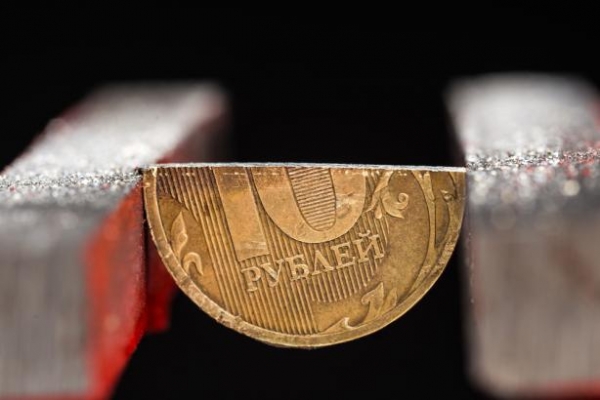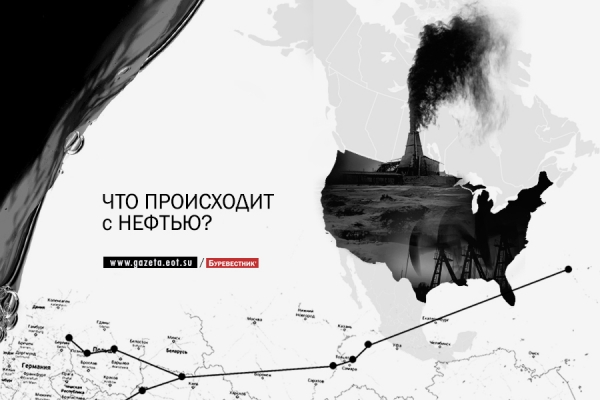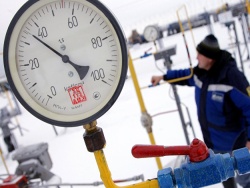
Those people who demand the lifting of sanctions imposed by the EU against Russia, is often cited as an argument to business interests. However, as important the Russian market is not.
A number of European politicians and representatives of the economy — not least from Germany — recently called to partial or full cancellation of sanctions imposed by the EU against Russia. In most cases, in their appeals, it remains unclear whether the Kremlin to meet certain conditions.
In this case, such appeals are contrary to the official position of the European Council. The Council in 2014, expressed the unanimous opinion of 28 members of the European Union, according to which the lifting of economic sanctions due to the “full implementation of the Minsk agreements”. This means a complete withdrawal of Russian troops, mercenaries, advisers and volunteers from the Ukrainian Donbass.
The annexation of Crimea to Moscow’s criticism of Western sanctions rarely mention. Moreover, they do not address such issues as the actual occupation of Moldavian Transnistria and the Georgian regions of Abkhazia and South Ossetia. And recent Russian actions in Syria in most cases, remain outside of the discussion about economic sanctions.
Therefore, without Russia, at least, of the Minsk agreement, any lifting of sanctions would be unreasonable and irresponsible action signal to politicians around the world, supporting irredentist and separatist movements.
“Pragmatic” business interests
In most cases, the supporters of a more compliant position in respect of Russia are trying to divert the debate in another direction. They want to move away from considerations of international law from questions of European security and unity of the West, but instead offer business calculations. They declare their pragmatic and realistic positions in contrast to their allegedly too idealistic-minded opponents.
Doubts relating to the security of Eastern European States should, in accordance with this logic, to give way to more specific benefits from improved economic ties with Russia.
The arguments of opponents of sanctions based on the alleged great importance at the present time the Russian market and its supposedly even more potential in the future. This view leads to constant complaints of some European companies and their lobbyists — especially in Germany — to the supposedly high economic rates that occurs at each renewal of the sanctions regime.
But what is, in fact, that the total damage to the European economy, which was caused by sanctions? How important is the external trade of the European Union is the modern Russian market? And how significant he would become after a partial or complete lifting of sanctions?
Less trade with Russia, less revenue
Over the past two years in economic relations between the EU and Russia have experienced a significant decline. According to Eurostat data regarding the balance of payments, exports of goods to Russia in 2012 reached its highest point to 122.1 billion euros, and in 2015 it was at 73,1 billion Euro, a decrease of approximately 40%. Services exports from the EU to Russia in 2013 amounted to 30.3 billion euros, and this was the highest rate. In 2015, it decreased by 19% and amounted to 24.4 billion euros. The influx of capital from Russia to the EU in the same period of time declined by 28% in absolute terms from 26.7 billion euros to 19.1 billion euros.
At first glance, these data indicate a major impact of Western sanctions and Russia’s counter-sanctions on the EU economy. But it’s not.
The EU economy, however, is in good condition
As the EU economy as a whole satisfactorily managed the consequences of the sanctions regime. And trade as a whole after the imposition of sanctions felt relatively good. The volume of total exports from the EU in the period from 2013 to 2015 increased from 1692 to 1785 billions of euros billions of euros. In the same time period, exports of services increased from 700 billion euros to 811 billion euros, and the inflow of income from capital increased from EUR 541 billion to 580 billion euros.
In addition, Western sanctions were the main reason for the reduction of trade between the EU and Russia. These reasons are rather associated with the recession in Russia and collapse of its currency, which in turn was a consequence, above all, significant reduction in the price of oil at the end of 2014.
In structural terms, Russia’s economic problems due to the rather high dependence of the country from the export of commodities (primarily we are talking about oil, petroleum products and natural gas), as well as the lack of competitiveness of Russian manufacturing industry. This dependence is exacerbated because of institutional weaknesses and unpredictable state intervention in the economy and a shrinking population of working age. In this respect, Western sanctions and retaliatory actions by Russia are of secondary importance.
A different kind of impact on trade is difficult to present in exact figures. But there are appropriate assessment. The most quoted source is dedicated to Russia report of the International monetary Fund (IMF) published in August 2015. In this IMF report finds that Russian GDP in the first year after the imposition of sanctions decreased for this reason by about 1-1. 5 percentage points.
In the same year, Russia’s GDP shrank during the recession by 3.7%. The proportion of equilibrium growth at a stable price for oil is about 1.5%. Thus, the relative weakening of the Russian economy in 2015 in General was about 5%.
If you take the basis of these figures, we can conclude the following: the effect of the sanctions on Russia is about a quarter or a third of the total weakening of the economy.
Assessable losses of the European Union
In the European Union, on the contrary, the effect of the sanctions has been slight, as evidenced by the growth of aggregate exports and foreign investment since the imposition of sanctions. This means that the value of the Russian market for the European Union in any case is not large that it completely contradicts the rhetoric of friendly towards the Kremlin lobbyists.
Statistics of world trade relations of the European Union — that is, excluding intra-European trade, provides additional confirmation. The share of Russia is small. Only 4.1% of revenue from exports of the European Union is 3.0% of revenues from exports of services and 3.3% of capital income. Comparing economic relations of the European Union and the United States shows how small are the Russian figures, and here the figures of 21.3%, 21.6% and 28.5%, respectively.
The question is whether the Russian market in the future to increase its value. Most economic experts believe that the sanctions will be lifted in the medium term. For example, the IMF in its assessment of the world economy comes from the fact that it will happen in 2018.
The importance of Russia remains small
The development of Russia during the specified period will depend primarily on the price of oil. In its recently published forecast, the IMF assumes that a barrel of oil next year will cost an average of 42.96 dollars, and in 2018 — 50,64 dollar. After that the oil will be even more expensive, and by 2020 the price of a barrel of oil could rise to about $ 60.
Based on the forecast of IMF on growth of the Russian economy and the ruble, we approximately estimated the value of economic relations with Russia for the EU in 2020. According to our estimates, even in case of full lifting of the sanctions from the beginning of 2018, it seems unlikely that the gains from trade and from capital as a result of economic relations with Russia achieved the highest results in 2012 and 2013. Rather, our calculations indicate a significant reduction in the relative importance of Russia for the EU in 2020.
This is due to the fact that — all this according to the IMF forecast, Russia’s GDP in 2020 (in current prices and in euros) will still be less than in 2013. Of course, for this kind of predictions, as always, need to take into account certain reservations. And over the next five years, of course, a lot can change.
However, we make the following four conclusions:
— first of all, even in 2013, when the price of oil exceeded $ 100 per barrel and the ruble was strong, the Russian market was at a high point in its development, had a relatively limited value for the EU;
— secondly, the already small share of Russia in trade of the EU decreased primarily due to the collapse in oil prices, but also due to Western sanctions in combination with the economic consequences of the Kremlin’s aggression against Ukraine, his Syrian campaign, a temporary conflict with Turkey, as well as other damaging the economy of action;
— third, a significant recovery compared to low levels by 2015 is possible in the medium term, however, this is not guaranteed;
— fourth, regardless of whether it will happen or will not happen is worth mentioning the revival of the Russian economy, the relative economic importance of Russia to the European Union, i.e. its share in comparison with the value of other markets for the EU economy, will remain below or far below the level that was before the Ukrainian crisis.
Not looking for economic chances where there are none
Western politicians and leaders of the economy should pay attention to this. A simple extrapolation of yesterday’s experience in the future leads to illusory expectations. Foreign policy recommendations should not be based on widely and loudly disseminated incorrect economic forecasts. The huge territory of Russia and its important role in international diplomacy should not persuade Western policymakers have come to see economic opportunities in the Russian market, which, at least in the near future, will not.
Therefore, the possible lifting of sanctions should increasingly be based on values, on international law and on the logic of the policy of security and not to imaginary urgent economic interests. Although some companies in the EU will benefit from the weakening of the sanctions regime.
However, the effect of attenuation or cancellation of the sanctions regime on the economies of the European Union will be negligible.
The enormous human and natural resources of post-Soviet Russia are promising. However, the current rulers in Moscow are unable to exploit the enormous potential of their country. During the first decade of the new Millennium Russia, despite high oil prices and the constant striving of Western countries to a closer partnership, has done little to modernize, and then, in 2014, a temporary window closed again.
For more than a decade of high prices for oil and natural gas have provided an opportunity for the Kremlin to eliminate underlying structural pathology in the Russian economy. The time of illusions has passed. The Russian market, as we knew before no longer exists. And he will not be reborn in the near future.








